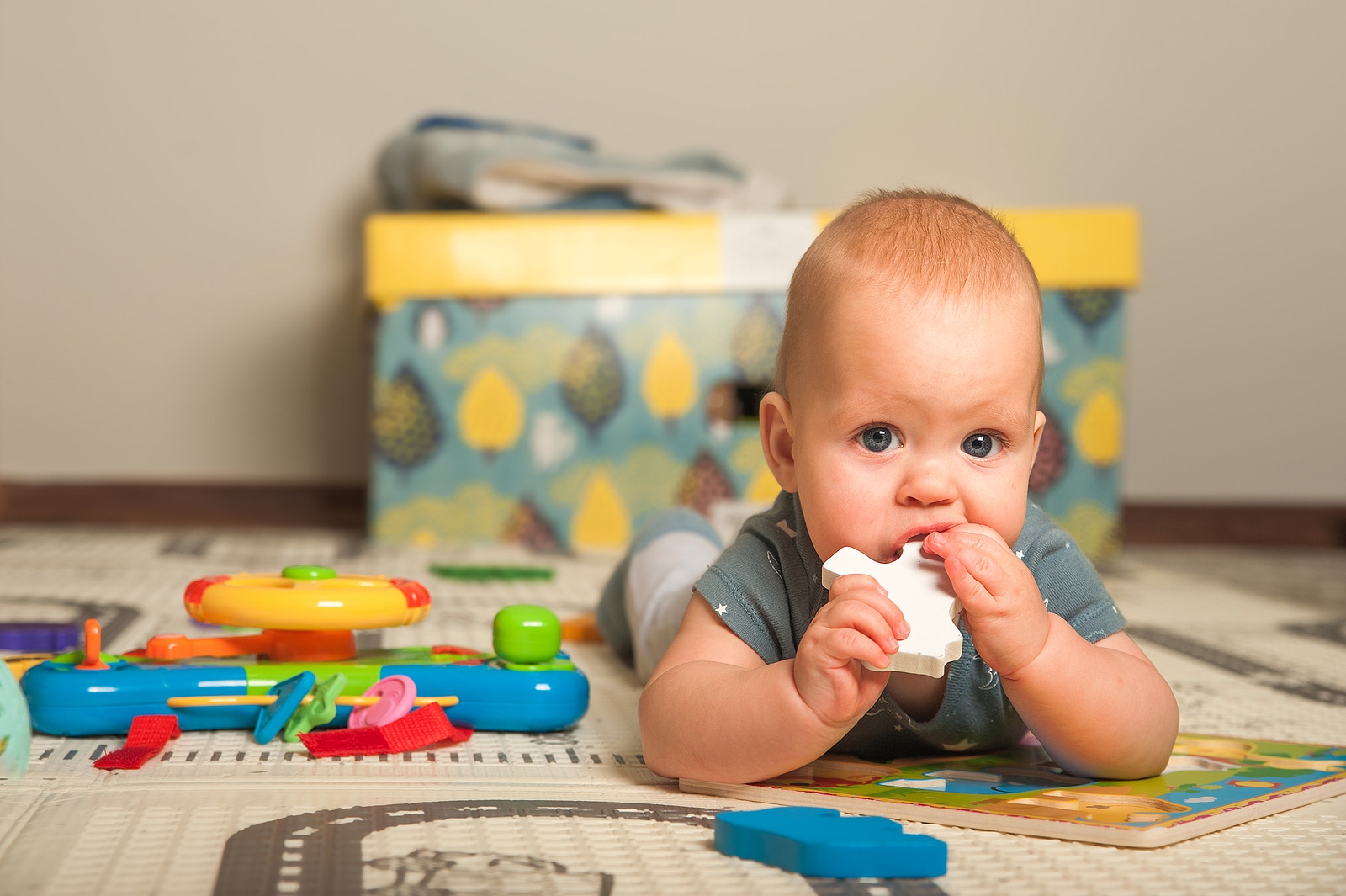
Is your child teething? It can be a difficult time for both the child and parent, as teething can cause babies to be uncomfortable and irritable. But Kid's Choice Dental wants parents to realize that teething is a normal part of child development and that there are ways to make the process more comfortable for everyone.
In this blog, we'll discuss common signs of teething, how to relieve child discomfort, and provide tips on what to avoid. These are all important factors to consider when your child is teething and can help you make sure that they are getting the most out of the process.
At around six months of age, a baby's first teeth should begin erupting. This process is known as teething. During this time, babies will experience much discomfort, while parents will typically feel powerless and frustrated because they may not understand what's going on or how to soothe their baby. Teething can begin sooner or later than six months, but the feelings a parent has while watching their child go through this change are the same.
If you notice the following changes in the behavior of your baby, it's possible they are teething.
Crying does not necessarily mean your baby is teething, but it's the most common sign that something is wrong. Babies can't verbalize their pain through words, so they cry. Child teething puts pressure on the baby's gums in the weeks leading up to the first tooth eruption, which means crying is usually worse than normal.
In an attempt to counter the pain and pressure, your baby will begin biting and chewing objects. This includes their hand, toys, and even your fingers. When they bite, it helps to numb the area and relieves some of the pain. This particular behavior is important for parents to watch carefully so their baby does not stick something in their mouth that they shouldn't.
Another sign of teething is excessive drooling, which can also cause a rash on the neck, chin, and mouth if parents neglect to regularly wipe it up. Plus, failure to do so will also make child teething a more uncomfortable experience. Whenever possible, use a damp cloth to clean the child's skin and reduce the chances of a rash developing.
If your baby is refusing to eat, they are either not hungry or their teething pain is making eating difficult. This can be a particularly alarming change if your baby eats regularly, but it's completely normal.
Unfortunately, teething is a reason why new parents don't get much sleep. The pressure and discomfort from child teething don't just occur during the day and stop at bedtime, it lasts through the night as well.
Pulling on their ears and rubbing their cheeks are also major signs of child teething, but they can also signal possible infection, so parents should monitor this behavior and take their baby to the doctor if it lasts more than a few days.
Teething is a process that doesn't just take a day or two to play out. Your child will have a full set of baby teeth around the age of two or three. That means child teething will last that long, but the result is your child's full smile.
Naturally, parents want to do whatever they can to relieve their child's pain, even take it upon themselves if they could. But that's not possible. What is possible is that parents have several options available to try in an effort to make their baby as comfortable as possible during this time.
A cool teething ring gives your baby an object to bite on that has a cooling effect that will reduce pain and swelling. A cool spoon or washcloth also works.
Massaging your baby's gums with a clean finger can also reduce discomfort, and lets your baby know that you are there for them.
Sometimes, even adults need white noise to fall asleep. If it can work for you, why not your baby? It may not work every time or at all, but it's worth a try.
Excessive drool can make a child teething worse by causing a rash. Wiping it away will prevent this.
Always check with your doctor or dentist before giving your baby pain medication. That being said, there are over-the-counter pain medications specifically for infants.
Using effective remedies won't provide much relief unless you avoid certain foods and products as well.
Parents understandably want to do anything they can to soothe their baby's pain, but that doesn't mean trying just anything. Keeping your baby safe and healthy is your first priority. Using risky products out of desperation will only hurt your child while teething itself is normal and does not pose a health or safety risk in general. We promise that you and your baby will get through this difficult time. Child teething will end.
You would usually take your child to their first dental appointment after the eruption of the first tooth. However, if you believe your baby is experiencing worse child teething symptoms than normal or you suspect an infection, see your dentist earlier.
Kid's Choice Dental proudly serves King County, Pierce County, and surrounding areas in Washington. Providing dental care to children is our specialty and we are ready to help you learn what to avoid when your child is teething. We use state-of-the-art technology and the most modern techniques to provide the best care possible.
At Kid's Choice Dental, we believe in providing the best preventative dentistry service for your child. If you have any questions about child teething or want to make an appointment, contact our office by calling 253-848-7000. You can also visit our website at kidschoice-dental.com for more information. We look forward to helping you!